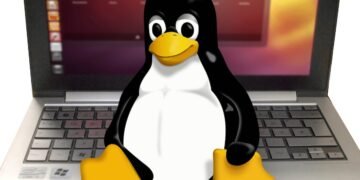Are you or the children around you taking online classes?
Are you able to connect with the healthcare professionals without stepping out of your house?
Are you getting groceries delivered at your doorstep and paying for the same without using cash?
If that’s a yes to all the above-mentioned questions, you have become a part of the world that has seen massive transformation in context to technology.
Do you know what the next big thing in the tech industry is?
It’s the transportation business that is already working in the same direction to achieve the unaccomplished over the years. In fact, the market is likely to grow to $328 billion by the end of 2023.
Without denying, the big-time credit goes to IoT technology and devices deployed within the sector. For instance, telematics within transports, traffic congestion systems, etc.
Also Read – How To Develop An IoT Application: Features, Benefits, and More!
The big question is
What is IoT for Transportation?
First of all, you should be familiar with the mechanism of the Internet of Things. Therefore, it is a network of objects that are immersed with sensors, software, and technologies used for creating a connection. These interconnected devices exchange data or information with other devices for active functioning.
Now, IoT for transportation gathers real-time data and exchanges it with interconnected devices. Do you wish to take a closer look at the whole mechanism? It is precisely what we’ll be talking about later in this article.
Advantages of IoT for Transportation
If you’re hooked up with the transportation business and want to develop an IoT-integrated app for the same, here are the top-notch benefits you must know.
1. Improved Customer Experience
IoT integrated with any mobile apps provides up-to-date and accurate data. Moreover, it improves the communication between devices, making the whole experience much more enhanced for the customers.
2. Upgraded Safety
IoT-enabled technology can help track activities like train speeds, roadway temperatures, vehicles at intersection, etc. Therefore, it boosts the safety of the transit systems.
3. Environmental Advancements
The IoT mechanism for transportation evolves traffic patterns and generates real-time data to help travelers plan their journey accordingly.
Applications of IoT in Transportation
Looking for the most common applications? Take a look!
1. Managing the Traffic
When it comes to the integration of IoT technologies, roading is one of the factors within transportation. Data or information can be gathered via CCTV, which disseminates vehicle-related info to the management centres within the city.
Apps that use IoT technologies include traffic lights, accident assistance, and smart parking.
2. Connected Cars
Technology is playing roles in industries that are far from our imagination! For instance, modern cars now come equipped with an internet connection, sensors, and other integrations that can control the tyre pressure, and more.
These are the connected cars that are likely to use in-vehicle networks, radar and cameras, etc., in the near future.
3. Toll and Ticketing
The traditional toll systems are exhausting and outdated. Undoubtedly, there’s an increase in transportation on roads, which may lead to long queues and waiting time to pass the toll.
IoT technology is being used in the shape of RFID tags to automate the process to improve the mechanism. As a result, it enhances the flow of traffic and reduces congestion.
4. Vehicle Tracking
The vehicle tracking system is primarily used by companies to track and manage their fleets. Additionally, it helps monitor the driver’s behavior and collects data regarding the same. Some of the most popular examples are:
- Fleet tracking
- Trip scheduling
- Speeding alerts
- Vehicle load monitoring
- Fuel consumed
- Distance covered
5. Public Transport Management
Smart transportation is a key area NC has been emphasizing while also focusing on the public transport section. IoT is already widely used; it can benefit public transport systems to a great extent.
Do you want to know how? Stay hooked!
- Data Analysis and Real-Time Management
Transit agencies use IoT to monitor real-time movement. Moreover, they also pre-prepare for the unpredicted accidents, including roadworks, emergencies, and more. Therefore, it helps them re-route and make it through an easy journey.
- Vehicle Tracking in Real-Time
IoT tech helps public transport management agencies to efficiently communicate with the customers and inform regarding the accurate arrival time.
- Personalized Travel-Related Information
Commuter behavior and travel patterns can be monitored by transit agencies to provide a personalized experience to the users.
Cost of IoT-Based Transportation App Development
Cost estimation of app development is complicated, especially when it is just a thought and the plan is not even laid. However, once the developers have started working on the plan, there are numerous factors that dominate the overall cost.
What are these factors? We’ve made it easier for you by mentioning a few of them below:
- Choice of the platform – Android, iOS, or Other
- Tech Stack
- Number of features integrated into the app
- Complexity of the project
- Ui/UX design
- Developer’s cost
- AND MORE!
To Sum up
Do you know which sector is rapidly growing?
Without a doubt, it’s the IoT for the transportation sector which is also highly benefitting the industry.
Sure, there are a few drawbacks of using the technology, such as security. As more and more devices are interconnected, the vulnerability of the same increases. Thus, overlooking the security factor will be a huge mistake, and every business must take care of the same while integrating the tech.
No wonder the future of the transportation industry is going to be breathtaking as we witness some tremendous tech and trends pair up with the same.
As mentioned above, if you’re a part of the industry, it is going to be advantageous for you if you opt to adopt IoT for your business. Not only this, but if you’re planning to start a new business, IoT is worth giving a shot!
How to get started?
All you need to do is connect with an IoT app development company and educate them with your idea. What’s more? Get more insights on the same.
So, are you all set to schedule your first consultation?









